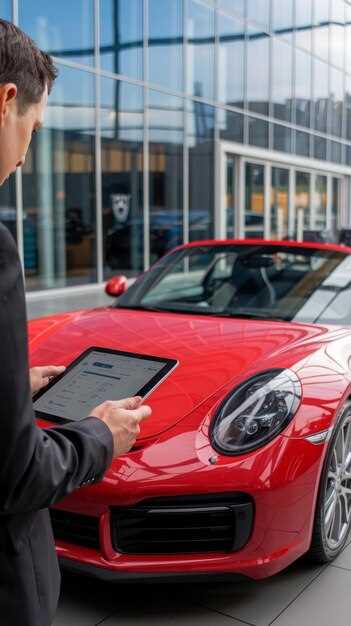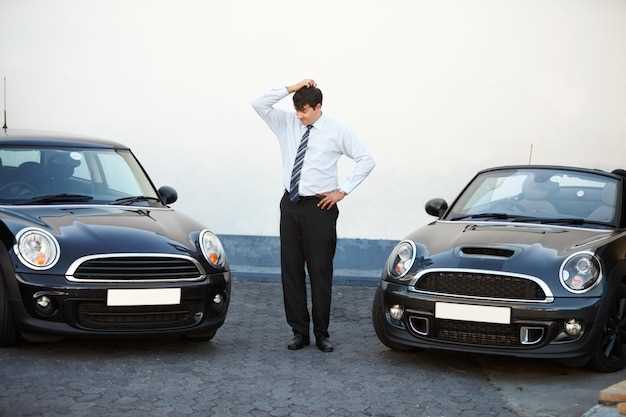
Porsche has long been synonymous with excellence in engineering and timeless design, making it a compelling investment option for those who appreciate both performance and style. In an era where the automotive market is constantly evolving, classic car enthusiasts are increasingly recognizing the value of investing in iconic brands. The allure of Porsche, with its rich heritage and commitment to innovation, positions it as a distinct player in the world of luxury collectibles.
One of the key reasons why Porsche stands out as a classic investment is its impressive track record of appreciation. Certain models, particularly those with limited production runs or remarkable historical significance, have shown substantial value increases over time. Rare gems like the Porsche 911 and the Porsche 356 not only embody the brand’s legacy but also serve as tangible assets that can appreciate significantly, providing investors with promising returns.
Furthermore, the strong community of collectors and enthusiasts surrounding Porsche enhances its market appeal. This network ensures that classic Porsches maintain their desirability and resale value, fostering a robust secondary market. As passion for automotive heritage grows, the demand for Porsches only stands to increase, making them a wise investment choice for both seasoned collectors and new investors alike.
Understanding the Resale Value of Classic Porsches
The resale value of classic Porsches is a crucial factor for potential investors and car enthusiasts alike. Over the years, certain models have proven to retain their value exceptionally well, making them sought after in the collector’s market. Factors influencing this strong resale value include the car’s heritage, performance specifications, and the overall condition of the vehicle.
Porsche’s historical significance adds immense value to its classic models. Icons such as the 911, produced since the 1960s, represent a blend of engineering excellence and cultural impact. The brand’s commitment to innovation and racing pedigree ensures that these cars remain relevant, attracting both seasoned collectors and new enthusiasts.
Moreover, limited production runs significantly affect the demand for classic Porsches. Models like the Porsche 964 Turbo or the rare Sport Classic Edition often command higher prices at auctions and private sales due to their scarcity and unique features. Collectors are willing to pay a premium for these vehicles, driving up their resale values over time.
Another vital aspect is originality and condition. Classic Porsches that have been meticulously maintained or restored to their factory specifications are particularly valuable. Documentation of the vehicle’s history, service records, and any upgrades or modifications also play a significant role in determining resale prices. Buyers are often willing to invest more in a well-preserved model that offers both authenticity and performance.
Finally, the overall market trends can influence resale values. A growing interest in classic cars, particularly among younger generations, has resulted in increased prices for desirable models. This trend suggests that investing in classic Porsches could be a wise choice for those looking to capitalize on their passion for these remarkable vehicles.
Analyzing the Market Trends for Porsche Models

The automotive market has seen significant fluctuations over the years, but Porsche models consistently exhibit resilience and appreciation in value. This trend makes investing in Porsche vehicles an appealing option for enthusiasts and investors alike. Historical data indicates that specific models, particularly the Porsche 911 and the Porsche 356, have not only retained their value but have also appreciated significantly over time.
One key factor contributing to the investment potential of Porsche models is their limited production runs. The exclusivity of certain variants, such as the Porsche 911 Turbo or the special editions like the 911 GT3, drives demand among collectors and investors. As fewer units are available in the market, even decades after their release, prices tend to soar.
Market analysis reveals that Porsche enthusiasts are also drawn to the brand’s strong heritage and engineering excellence. This emotional attachment often translates into a willingness to pay premium prices for well-maintained models, enhancing their investment appeal. Additionally, the increasing popularity of classic car restoration trends has led to a surge in interest for vintage Porsche models, boosting their market value.
Another crucial aspect is the performance and reliability that Porsche vehicles offer. These models are engineered for high performance and durability, making them suitable not only for casual use but also as viable long-term investments. The ability to track performance metrics over time further supports their appeal as assets with a solid resale value.
In summary, the combination of limited production, strong brand loyalty, and high-performance standards makes Porsche an intelligent investment option. Investors looking for a blend of automotive passion and financial savvy should carefully analyze current market trends and consider adding Porsche models to their portfolios.
Maintenance and Ownership Costs: What You Need to Know

Owning a classic Porsche is not just about experiencing high-performance engineering; it also involves understanding the associated maintenance and ownership costs. These expenses can significantly influence your overall investment in one of the most respected brands in the automotive world.
Maintenance Costs
Porsche vehicles are renowned for their durability and build quality; however, they still require regular maintenance to ensure longevity. Routine services include oil changes, brake pad replacements, and tire rotations, which can vary in cost depending on the model and age of the vehicle. Classic Porsches, in particular, may require specialized parts and expertise, which can lead to higher maintenance costs compared to modern alternatives.
On average, owners can expect to spend anywhere from $1,500 to $3,000 annually for routine maintenance on a standard Porsche. For classic models, this figure can escalate, especially if restoration or component upgrades are needed. Investing in a vehicle with a good service history can mitigate some of these costs, as less immediate work may be required.
Insurance and Ownership Expenses
When considering a classic Porsche, insurance is another crucial factor. Premiums for classic cars can vary widely based on the model, usage, and location. Classic Porsches often enjoy lower rates if they are stored properly and driven infrequently. Expect to pay between $800 to $2,000 annually for classic car insurance, depending on your coverage choices.
Additional ownership costs include registration fees, fuel, and occasional unexpected repairs. Some owners may also invest in upgrades or modifications, which can further impact overall costs. It’s essential to factor these expenses into your budget to ensure a smooth ownership experience.
Resale Value Considerations
While maintenance and ownership costs are critical, it’s essential to consider how they relate to the vehicle’s resale value. Classic Porsches tend to hold their value exceptionally well, and some models even appreciate over time. By maintaining your Porsche meticulously, you not only ensure reliability but also enhance its future resale potential.
In summary, understanding maintenance and ownership costs is vital when investing in a classic Porsche. By preparing for these expenses, you can enjoy the driving experience while also safeguarding your investment.
 Skip to content
Skip to content





